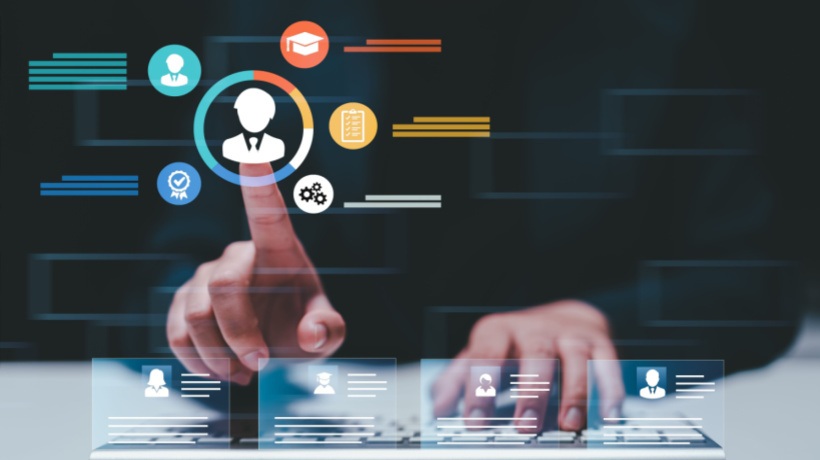AI In HR Innovation Presents A Notable Challenge
In the ever-evolving world of HR technology, where the boundaries of possibility are constantly being pushed, one principle remains steadfast: ethical AI. It’s not just about innovation; it’s about harnessing the power of Artificial Intelligence with integrity and empathy. At the intersection of human resources and cutting-edge AI lies a pivotal juncture that can redefine the employee experience. One where ethical AI becomes the catalyst for creating a workplace that truly understands, supports, and empowers its people.
Artificial Intelligence can also be used for process automation, allowing us to optimize our work and become more efficient. On the other hand, it will enable us to make correlations that are not immediately obvious—if they were, of course, human intelligence would suffice!
Combining these two factors can significantly improve our HR processes, but the algorithm cannot think for itself. That’s why it’s essential to talk about ethics and consider how to incorporate algorithm behavior into the design stage.
The Challenge Of AI In HR Innovation
We cannot ignore the fact that AI creates uncertainty and risk, and the field of HR is no exception.
One commonly discussed example is using unfiltered human data for a recruitment algorithm that results in gender-based discrimination. This kind of situation has occurred because, often, programming AI is based on having a lot of data and searching for repetitive patterns within that historical data. The data can reflect outdated realities—for example, that most people holding certain positions are men.
For this reason, companies that work with automation have a responsibility to bring together data engineers, HR professionals, and ethics professionals in order to use this technology effectively.
The Importance Of AI In Workforce Learning And Development
There are many reasons to innovate in this area, as these elements have become more evident in recent times:
- Speed
- Volume
- Rapid changes
- The limitations of traditional manual processes
For example, let’s consider a company that wants to adapt to change and adopts a learning strategy based on reskilling. A manual process is limited in both capacity and quality; thus, automating AI processes will help us manage these processes faster, ensuring they are helpful.
But in order to achieve this, HR departments will have to be updated and become “experts” on AI—or, more accurately, expert users of AI. Here are two key considerations:
- Choosing the right data: What data are we using to create these algorithms? If we use historical data, this can have consequences we need to consider during design.
- Using the algorithm: Once the algorithm has been implemented, its users—i.e., HR teams—will have to learn how the AI works to assess the accuracy of its results, correct errors, reduce risk, and contribute to improving AI.
This phenomenon will open up new jobs within HR departments while offering an excellent opportunity for this department to expand its skills—upskilling and reskilling.
Focus On Ethical AI
We focus our innovation on ethics at Cornerstone, remembering these seven requirements for ethical AI—human agency and oversight, technical robustness and safety, privacy and data governance, transparency, diversity, non-discrimination and fairness, societal and environmental well-being, and accountability.
AI is a very powerful tool. How it’s used depends on us, the HR professionals.
Witness how our Cornerstone AI solutions combine cutting-edge technology and unwavering integrity to revolutionize the world of work.
Additional Resources:
Originally published at www.cornerstoneondemand.com.

